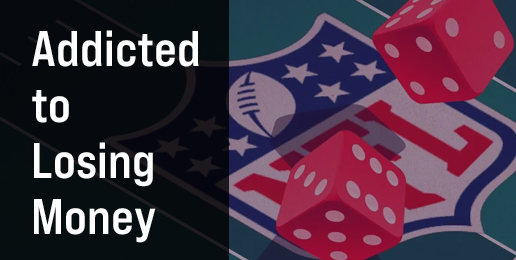
I still remember a particular airline flight I took in high school. I was heading out of Colorado after an academic event, dutifully reading a literature assignment to make the most of the travel time.
Part-way through the trip, however, I put a bookmark in my volume and got into conversation with a lady sitting in my row. I’m sure our interchange started out with the usual, superficial conversation-starting questions—I don’t remember now, anyway—but what I do remember is that the conversation quickly took a much more serious turn.
She told me rather light-heartedly that she worked at a casino in the state, and, similarly light-heartedly, she told me I was welcome to come by if I ever was in the area.
I was a bit taken aback that she’d invite a high-schooler to her casino, but the Lord quickly showed me a golden opportunity to share the gospel.
“Well, I appreciate the offer,” I said, “but personally, when I hit hard times, I don’t want to turn to things like gambling or alcohol to distract me from my problems. I want to turn to my Lord Jesus—He will help me through it.”
We ended up talking about the Lord until the landing gear hit the tarmac at our destination.
Sadly, our world is hopelessly distant from the Lord and His Word, and thus we find all manner of things to patch our problems instead of turning to Him. There’s the usual, of course—drinking, careers, pornography, etc.—but in recent years another candidate for wasteful, destructive distraction has exploded onto the scene: Sports gambling.
Just under a year ago, IFI asked me to write an article on sports betting, which I titled “The Gamble Behind the Gamble.” (If you haven’t read it already, I’d be honored if you would.) So, when IFI recently asked me to write another article on it, my initial thought was “…but I already wrote on that.”
Yet, as I looked into it a second time, I realized that this monster is looming so much larger than even just last year. The American Gaming Association projected that American adults will bet a total of $35 billion on this year’s NFL season—about one-third more than last year’s season.
Just a few years ago, I probably wouldn’t have even been able to write an article on this. That’s because sports gambling was banned almost everywhere in the U.S. before 2018! But now, just six years later, the practice is legal in 38 states, with Missouri set to join the blissful bunch sometime soon.
One estimate announces that one in five Americans has a sports betting account; another estimate claims that one in three have bet at some point in their lives. So look around you the next time you’re at the grocery store. It’s quite possible that every fourth person you encounter is involved in some way.
Unsurprisingly—because it’s gambling, after all—various voices are sounding the alarm about aspects of this burgeoning industry.
In my last article I talked generally about the financial, health, and relational curses, so in this article, let’s look deeper at a couple specific criticisms which were published within the last year.
First, medical organizations have published lists of symptoms to help you know whether you’re officially addicted to the sports gambling you love so much. As Dr. Myra Mathis (an addiction physician) insightfully observes, gambling addictions are known as “hidden addictions” because they don’t manifest themselves in physical symptoms like drugs or alcohol do.
Nevertheless, even though this addiction may lack the external symptoms of substance abuse, it sure echoes with the same kinds of afflictions you would expect from a substance addiction. Take a look at some of the symptoms that the University of Rochester Medical Center has published:
- Constantly thinking about gambling
- Needing to bet progressively larger amounts to achieve the same excitement
- Unable to stop even after repeated attempts
- Increasing debt to fund the addiction
- Lying and secrecy to hide the activity from friends and family
Soberingly, though, gambling addictions are not as far removed from substance abuse as one might hope. The same publication warns us that compulsive or problem gambling is indeed associated with higher risk of suicide and substance use disorders.
Second, the athletics community seems to be waking up to the effects of gambling on athletes who are being gambled on. This is because a certain kind of sports gambling—known as “prop bets”—is based on the performance of specific athletes. When those athletes don’t perform as the gamblers hoped, the athletes themselves sometimes bear the brunt of the gamblers’ frustrations.
According to the NCAA, one North Carolina college athlete reported receiving over 100 derogatory social media messages because he didn’t get enough rebounds during his most recent game. And he’s not alone, as one in three prominent athletes reportedly receive similar gambling-incited abusive messages.
For those whose chivalrous hackles need to be raised a bit higher, note that female student-athlete basketball players receive three times more threats than their male counterparts.
Accordingly, various jurisdictions have moved to ban prop bets and protect athletes. I think we can all agree that college athletes shouldn’t have to put up with ridicule because immature spectators can’t control their money, or their tempers, or both.
Am I being a bit unfair? Is it possible to gamble in a controlled, responsible, and respectful way? Perhaps. But the stats aren’t optimistic: Two million American adults meet criteria for “problem gambling” each year.
As this ravenous industry continues to expand, we can keep expecting more unintended consequences to continue rearing their ugly heads.
I can only imagine how many people are utilizing sports gambling in the way that addictions are often utilized—to escape the problems of the real world. As I reminded the lady on the plane, only in Christ are our problems truly solved.
Christ’s solution is repentance and forgiveness, not indulgence and temporary escape. I still remember seeing tears in that casino worker’s eyes when I prayed for her at the end of our flight. Even though she made her living helping people waste their money, I could see God’s message touching her nonetheless.
And as bleak as things may look, I know that the Lord can redeem even the most hardened gambler from his addictions.























